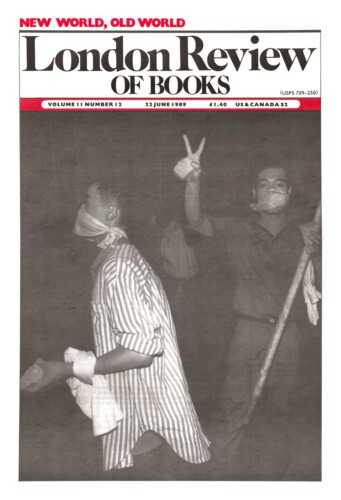Long live Shevardnadze
Don Cook, 22 June 1989
One of the many welcome aspects of Gorbachev’s glasnost is that it has made possible a mutual East-West re-examination of the twists and turns in the record of Cold War conflict and confrontation. Last February, for example, there was a gathering in Moscow of top-level participants in the 1962 Cuban missile crisis, from both the White House and the Kremlin: they were meeting to discuss how those events unfolded in each capital, and how decisions were made on each side, almost minute by minute. One of the participants was Andrei Gromyko, just before his recent retirement as President of the Soviet Union. Earlier, on a visit to Moscow, the British Secretary of State for Education, Kenneth Baker, received from a group of Soviet historians a surprise proposal to organise a joint examination of Soviet history books with English historians, in order to improve the writing of Soviet history after so many years of toeing the Communist Party line. The proposal was accepted with enthusiasm. A few dissident Soviet historians like Roy Medvedev have, of course, for some time been challenging the official orthodoxy of Soviet history, in which the Kremlin never makes mistakes and always prevails against capitalist enemies. In the West, revisionist historians have frequently been in vogue, particularly in the United States, with recurrent fits of academic or political questioning about who was really responsible for the Cold War. But until now, both Soviet dissidents and American or English revisionists have had to theorise or analyse almost exclusively on the basis of Western records and source material, Western memoirs and historical writings. Soviet records have remained a closed book and Soviet versions of history have been about as useful as re-reading Pravda. Memoirs have not been permitted. Khrushchev’s potted account of his turbulent decade at the centre of power was smuggled out of Moscow and has never appeared in print in the Soviet Union. Although it contains some lively and interesting passages, it has to be treated with caution as largely self-serving.

